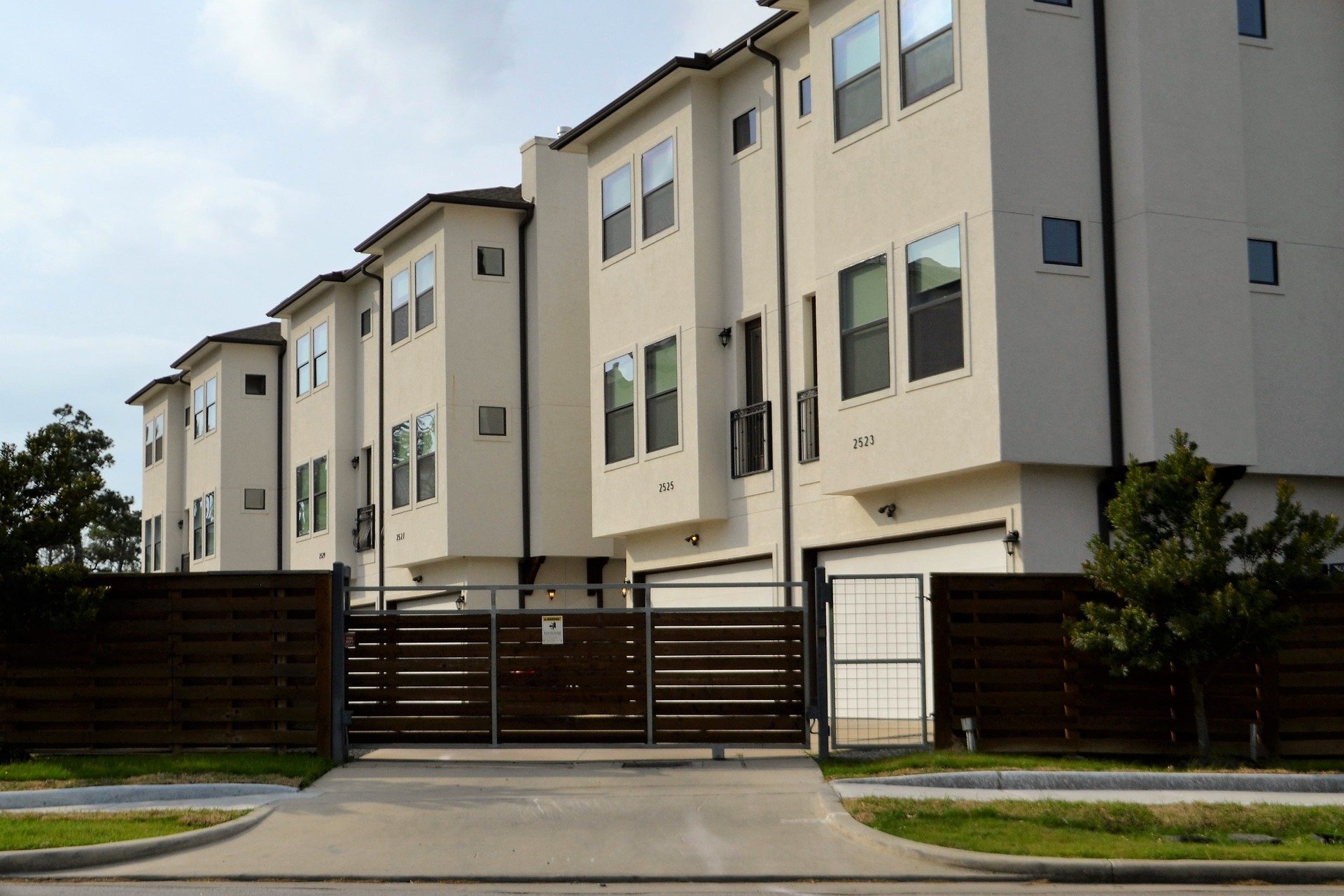Long-Term vs Short-Term Rentals - What is the Difference?
Long-term and short-term rentals — when renting out your property, which one's best?
Thank you for reading this post, don't forget to subscribe!What they share in common is a basic need for housing: guests or tenants are signing up to a rental agreement with a fixed expiration date that gives them a right to be on the property provided all contract fees are paid on time.
Here's where they differ
Short-term rentals are short. Think 'Airbnb'-short. This type of rental is often referred to as "temporary housing." The term describes an agreement type rather than a property classification, so it could be condos, apartments, duplexes, one room, five rooms — anything. The difference is the time period: guest stays usually don't exceed a few weeks.
Long-term rentals are usually bound with a lease agreement that is a contract with a set occupancy term - usually 12 months or more.
Long-term leases can start anywhere from three months. Usually, once signed, the terms of the contract can only be changed when agreed upon by both the tenant and landlord.
Short Term Rentals, Explained
The increased popularity of platforms like Airbnb, VRBO, or Booking.com has made it easy for anyone — from beginners to experts — to enter the short-term rental market.
But what is a short-term rental?
An owner offering a property for anywhere between one evening and one month can be considered a short-term landlord. This is temporary housing that can come in the form of apartments or larger, standalone properties. These are properties for visitors who are usually just passing through.
Short-term rentals also often appear in searches for "vacation rental housing." They are often used as an alternative to hotels.
These are only going to grow in popularity and deserve to be part of any property owners' portfolio, especially now with the prevalence of Covid-19. The CDC is now saying it is safer to stay in vacation rental homes with family members instead of multi guest, multi-family lodgings like hotels.
The Pros and Cons of Short-Term Rentals
Here we will take a quick look at some of the advantages and disadvantages of short-term rentals.
We have already seen the major differences between short-term and long-term rentals so it’s important to understand the pros and cons of these properties.
Advantages of Short-Term Rentals
You deal mostly with guaranteed cash transactions. You will generally receive payment as soon as the property is reserved. This reduces the possibility of tenants failing to pay.
Income from short-term rental properties is generally higher than long-term rentals. Depending on the season and bookings, basic properties can give you up to $2,000 per month, while more luxurious residences will pay up to $5,000 per month.
Furnishing your rental property allows you to charge more than a long-term unfurnished property. You will be able to earn passive income while the property appreciates over time. You can use online platforms like Airbnb to market your property.
Short-term rentals are not purely for vacation tenants. You can cater for a range of people including those who need to:
- Visit town for medical treatments or procedures
- People visiting loved ones in the hospital
- People visiting for a ‘staycation’
- Homeowners who are renovating their house
- Professional/college sports teams
Short-term rentals can reduce your tax liability as you can deduct all of your expenses while managing your investment property. Some expenses you can write off include:
- Occupancy taxes
- Utility costs
- Lawn maintenance
- Property management fees
- Cleaning costs
- Hosting fees
- Mortgage interest
- Supplies
Disadvantages of Short-Term Rentals
Seasons and weather conditions will have a big impact on your occupancy levels.
You will need to keep track of your bookings, especially during holidays and the summer so you can keep your property fully booked.
Additionally, short-term rentals are usually not a means of generating passive income. You will still have to lend a hand at least in the beginning.
What's more, until you can afford to find some hired help, you will need to clean, prep, and restock the property.
You will also need to keep abreast of repairs and make sure everything is maintained and is in good condition.
There are also high maintenance costs compared to long-term rentals because of the constant flow of people in and out.
The property is likely to undergo more wear and tear, hence more breakages and repairs.
Finally, there are higher finance costs for vacation homes. Second homes or vacation properties usually have a larger down payment, as well as higher interest rates.
This is due to the risk of abandonment if mortgage payments cannot be met.
Quick Tips for Managing Your Short-Term Rentals
To begin with, it is advisable to use online booking platforms as mentioned above. These will let you test the waters and prepare your property.
Another method would be to advertise your property on your website. Reach out to friends and family as well as social media platforms to showcase your home.
Offline marketing can also improve your customer base and you can reach out to event organizers, hospitals, or even sales-based companies to help promote your property.
Another tip is to maximize your returns by fully researching your audience.
Are Short-Term Rentals Right for You?
To buy your first short-term rental property, you will need to get prequalified.
It will define the type of property you can afford and your cash flow and is probably the most important step before buying your investment.
You will also need to satisfy some criteria.
- Have a credit score of at least 689
- Have been employed in a US company for at least two years
- If self-employed, have 3-5 years of self-employment
- Have access to a full down-payment
- Have money for six months of expenses in cash
- Have a favorable debt-to-income ratio
If you meet these criteria, you are in a great position to succeed in short-term rentals - or even long-term rentals.
7 Things Every Landlord Should Know About Short-Term Rentals
As with all forms of rental, long and short-term rentals have their own specific legal framework depending on where they are in the world.
Here are a few tips each landlord should fully understand before delving into this unique rental market.
#1 — Research regulations in your area
Make sure you understand the legal licenses, additional taxes, insurance, homeowners association policies, and local zoning laws that will apply to your rental business. Web research is fine but look for the original text of the regulations described rather than a summary or interpretation of what's there.
Are you only legally allowed to have one place or can you run a few? Are there regulations on the price you can charge tenants? What's the final word on pets a family might bring to your property?
These can vary widely from city to city.
For example, local regulations and license requirements can limit the length of time that constitutes a short-term rental. In some cities, it is illegal to buy a house with the sole purpose of short-term renting.
Some cities may even limit rentals to weekdays only, or in places like New York apartment rentals have to be a period of longer than one month.
In some cities, like Los Angeles and San Francisco, landlords need to register as a business entity.
It is important to note that these rules may change as officials try to balance the interests of those who push for property rights vs those who try to restrict short-term rental units.
Generally, hosts who offer living space via third parties like Airbnb will need additional coverage insurance that can have a big impact on your overall expenses. Also, make sure you are in line with your local homeowner’s association regulations.
While not legally necessary, it's good practice to be in touch with the neighboring family and ward or district leadership. You don't need to be on a first-name basis with everyone, but partnering with those who live or work in the area as a friendly rental owner can be a great thing.
These are just a few of the moving parts to watch out for. Explore and get to know all the city, district, building level rules to determine whether this is going to be a strong addition to your real estate strategy.
#2 — Consider engaging a property management company.
Even if it cuts into your bottom line, it may be helpful to obtain the services of a management company to manage urgent situations.
This is especially true for technical services like HVAC or plumbing.
You may not have enough time or energy to deal with emergencies, so you may consider having property agents on board to assist and help you manage any unforeseen problems that may arise in your bed and breakfast operation.
Think carefully about the impact this will have on your profits as many managers collect a percentage of your gross monthly income — often between 8% - 12% depending on the size of the apartment building or home.
#3 — Prepare your budget
Calculate your expected return on investment. According to real estate broker, Jeff Checko, a major advantage of vacation rentals is the potential to exceed anything paid out by long-term rentals.
For example, beachfront homes with a rental fee of $2,000 per week for 12 weeks during the summer, will yield more than a long-term lease of $1,500 per month.
As a newbie, you may be tempted to think that short-term rentals are cash cows, but you will need a sufficient initial investment.
Consider all the expenses including:
- Original interior design and furnishings
- Monthly utility bills
- Maintenance
- Repairs
- Cleaning services
- Consumables like toiletries and kitchen basics
- Property taxes
- Homeowner’s insurance
- Mortgage payments if your property is financed
With all of these in mind, calculate your total monthly expenses, then decide on daily or weekly rates that will appear on a web page when people view your property listing.
This will give you the number of bookings you need per month to make a profit.
Tools like AirDNA.co provide data on how much income you can expect. Do research on peer bed and breakfast properties on a page like Zillow.
#4 — Consider your future refinancing requirements
When you begin to earn short-term rental income, you need to understand the impact this income will have on your interest rates.
Although it may not preclude you from future refinancing, it can either lower or increase your interest rates.
Some lenders may not accept third-party short-term rental income from transient tenancy agreements as part of your annual income so you will have a higher mortgage rate.
Some lenders classify rental property as an investment, that will also result in higher interest rates.
CEO of Better Mortgage Vishal Garg says lenders count Airbnb income as part of refinancing applications and had approved over $30 million in loans to hosts within a month of launching.
Most of these funds are used for renovations, Garg says.
“They’re actually able to do more with their homes, so they can rent out an even bigger part of their home on Airbnb," he wrote.
With sufficient short-term rental income from transient guests, you also have the option of using it to pay off existing mortgages to pay off your debts faster.
#5 — Choose the best location and property
Real estate is all about location! This is especially true when it comes to vacation rentals — the home or apartment needs to entice renters.
Guests are looking for affordable short-term rentals, with all the appropriate amenities with easily accessible transport routes.
While major cities attract most business travelers, do not discount smaller towns. If you can market your rental property well during peak seasons, you can maximize your occupancy rates and profits.
For seasonal short-term rentals, put aside six months to reach full capacity and remember to monitor local laws.
Once you have the ideal location, invest time and money to improve its curb appeal.
#6 — Invest in high-quality photos
Pictures speak louder than words, so invest in high-quality images.
In the beginning, this is probably one of the best things you can invest in and you can use them forever to draw in new guests.
Up to 90% of guests who choose a house or apartment decide based on the pictures they see online.
#7 — Protect yourself with a comprehensive rental agreement
A good rental agreement will limit your liability in the case that someone is injured on your property.
You should also consider registering as an LLC to further limit your liability.
Your rental agreement should also outline the rules including the minimum number of nights that guests have to stay.
Include restrictions on parties, or large gatherings too - a rowdy party can cost you in both repairs and reputation. You should also add a cleaning fee or charge extra for excessively messy guests.
After surviving Covid-19, and as the travel industry recovers, we are here to help you and provide online support.
Simply contact us at 800.898.1498 or email us at info@theshorttermshop.com to speak to one of our professional team members.
We have helped hundreds of landlords start their journey in short-term rentals, as well as increase their occupancy rate.
With personalized and professional advice, you are sure to appreciate Avery just as much as Becky does.





